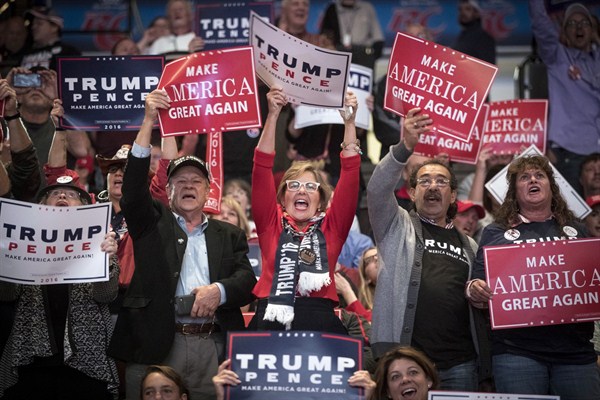Editor’s note: This article is part of an ongoing WPR series inviting authors to identify the biggest priority—whether a threat, risk, opportunity or challenge—facing the international order and U.S. foreign policy today.
Anti-trade sentiment in the United States, embodied in Republican candidate Donald Trump’s campaign for the presidency, has risen dramatically over the past two years. The conventional wisdom says that protectionism is on the rise due to the economic impact of globalization. Free trade agreements have cost U.S. jobs and driven down wages in many regions of the country, which has fueled the backlash and aided Trump’s rise.
The link between Trump and anti-trade attitudes is correct, but the causal arrow is pointing the wrong way in this account. The distributional consequences of globalization are not driving protectionist attitudes in the United States; Trump is. His rhetoric, which has reshaped many Americans’ attitudes toward trade policy, is behind the growing anti-trade movement in the world’s most important liberal trading state. This means that addressing the root causes of protectionist attitudes will be more difficult than some think.

